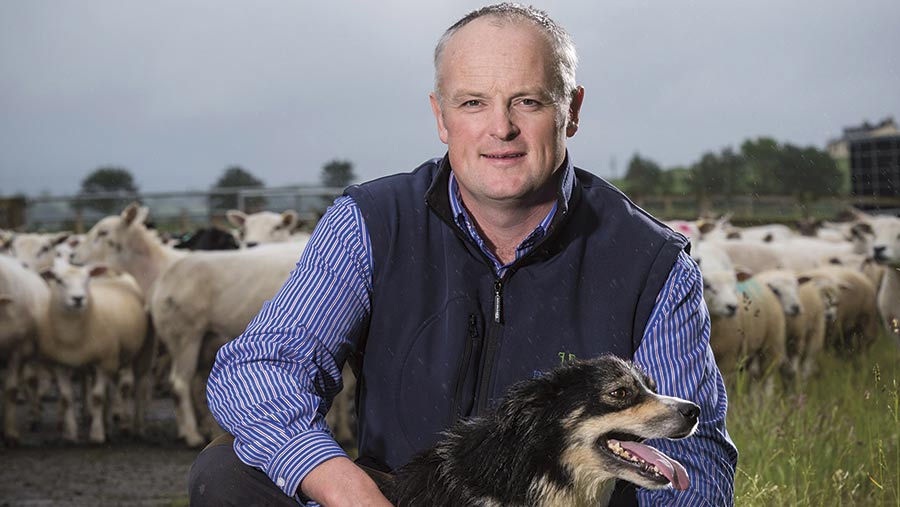Farmer Focus: Must get a mower to maintain grass quality
 John Scott © Jim Varney
John Scott © Jim Varney One of the benefits of jetlag is that you’re up early in the morning ready to conquer the world before breakfast.
When I appeared downstairs at 4am, Eliza the terrier looked at me as if I was mad, Pip our collie gave me the “aye right” look and Tui the young huntaway could not believe her luck as she got to play three hours earlier than normal.
With most of the stock checked, I ventured into the office and, of course, top of the list was putting some thoughts together for the Farmers Weekly faithful on my recent study tour to New Zealand.
Townies taking hold in New Zealand
This trip was the first time I have been over in their winter. It was intriguing to see how they managed their farms and livestock throughout the winter period first-hand.
See also: Read more of our Livestock Farmer Focus writers
Fodder beet could be found in various parts of the country with Brigadier being the main variety of choice with 25t DM/ha being regularly achieved.
For me seeing fodder beet being grown and utilised on a wider scale than we see at home was both useful and reassuring that we are on the right track.
Water quality is getting talked about a lot in New Zealand. Cropping and fertiliser programmes are getting pressurised by those in urban areas.
When I was first in New Zealand 22 years ago, the urban population seemed to have a close link with farming but this link has weakened. It will be very interesting to see how things play out over the next few years.
Grass is berserk
On the home front, grass is completely out of control. The guys have tried hard but a month of rain and high soil temperatures have given us serious growth.
We don’t own a mower but I think a second hand one is needed to ensure we maintain grass quality.
Our first batch of 63 April born lambs (mostly males at 38kg) were sold to Woodheads averaging 19.3kgs and £90.94.
Bulls have now been let loose with all cows on all units except for 30 of our stud Beef Shorthorns, which we will AI for the first cycle prior to the bull being turned out.
John and Fiona Scott farm 200 suckler cows and 4,500 breeding ewes, as well as some crops across 2,226ha. He also has two contract farming operations and generates energy from a small-scale wind turbine and biomass boiler.
